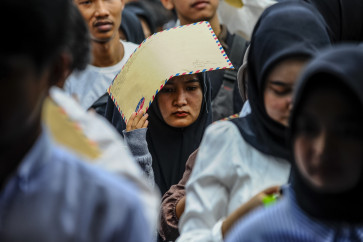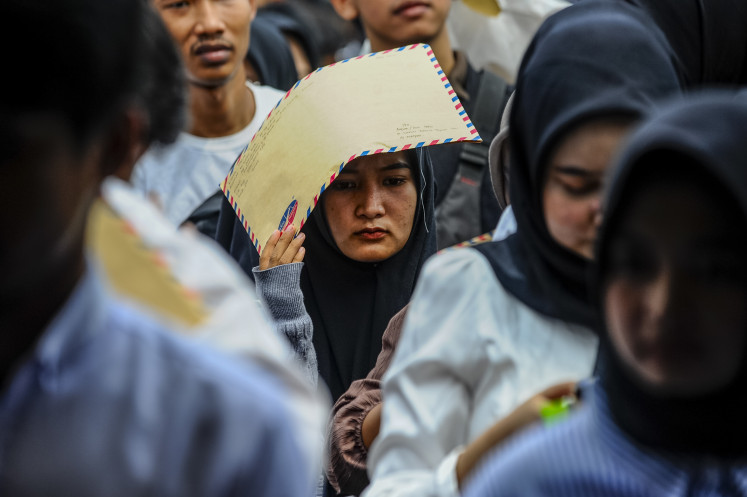Discovering Fashion Forest in Bio Park
Conservationist: Eddy Chan points to a sign board inside the Awana Bio Park at Resorts World Genting, Malaysia
Change text size
Gift Premium Articles
to Anyone

C
onservationist: Eddy Chan points to a sign board inside the Awana Bio Park at Resorts World Genting, Malaysia. The Bio Park offers excursions into the jungle dubbed the “Fashion Forest”. (JP/Dhoni Setiawan)
The Genting Highlands in Malaysia are not just a destination for casinos and theme parks. The large forests that surround the highlands have potential for eco-tourism, as found at the Awana Bio Park.
The Bio Park can be reached in less than five minutes on a shuttle bus from the Awana SkyWay Station.
Visitors can lodge at the Awana Hotel before being transferred to the park.
“The Bio Park is not open to the general public, only for guided tours. Guided walks usually take two hours starting at around 9 a.m.,” conservationist Eddie Chan from the Bio Park’s managing company Treks told The Jakarta Post.
Treks arranges jungle trekking for visitors to experience the “Fashion Forest”, during which information about flora and fauna is readily accessible, thanks to the available 4G connection.
Three trek options are available based on age and ability with the Eco Trek being the most challenging and not recommended for senior guests or children.
The Eco Trek takes tour participants deep into the jungle. The walk is strenuous, but has the highest probability of encountering wildlife and exotic plants.
The 200-hectare conservation area, which borders the Awana Golf Course, is home to more than 100 species of trees and plants as well as five species of primates, three species of large mammals, one large cat species, five hornbill species and two types of eagle.
There are also more than 200 native and migratory bird species, as well as many species of moths, butterflies and beetles.
Visitors only need to tap their phones on the tags installed on the trees or plants to see detailed descriptions, some of which are shown with videos.
“We will be reinstalling some new ones beginning mid-September, and also whenever applicable we will install NFC [Near Field Communication] tags,” Chan said.
NFC is a technology installed free of charge in high end Android phones. With activated NFC, a phone can be used to tap the tag to get information about the trees or plants.
“This technique was developed by us here at Treks,” Chan said.
“But this can only be done if you have Internet. So in the forest here on Genting we have 4G speed and we provide free WiFi to guests who walk with us,” he said.
Chan and his wife Pat Ang are currently also running a pitcher plant conservation program.









